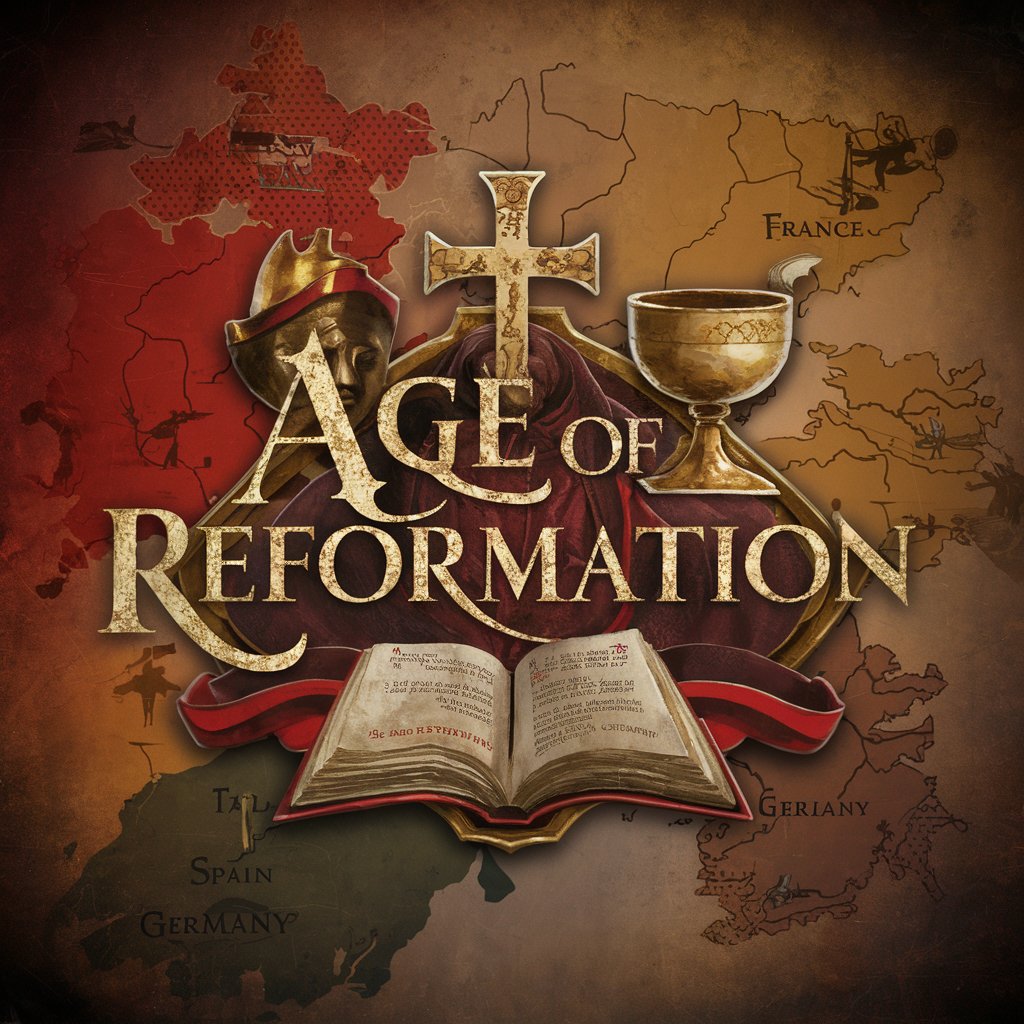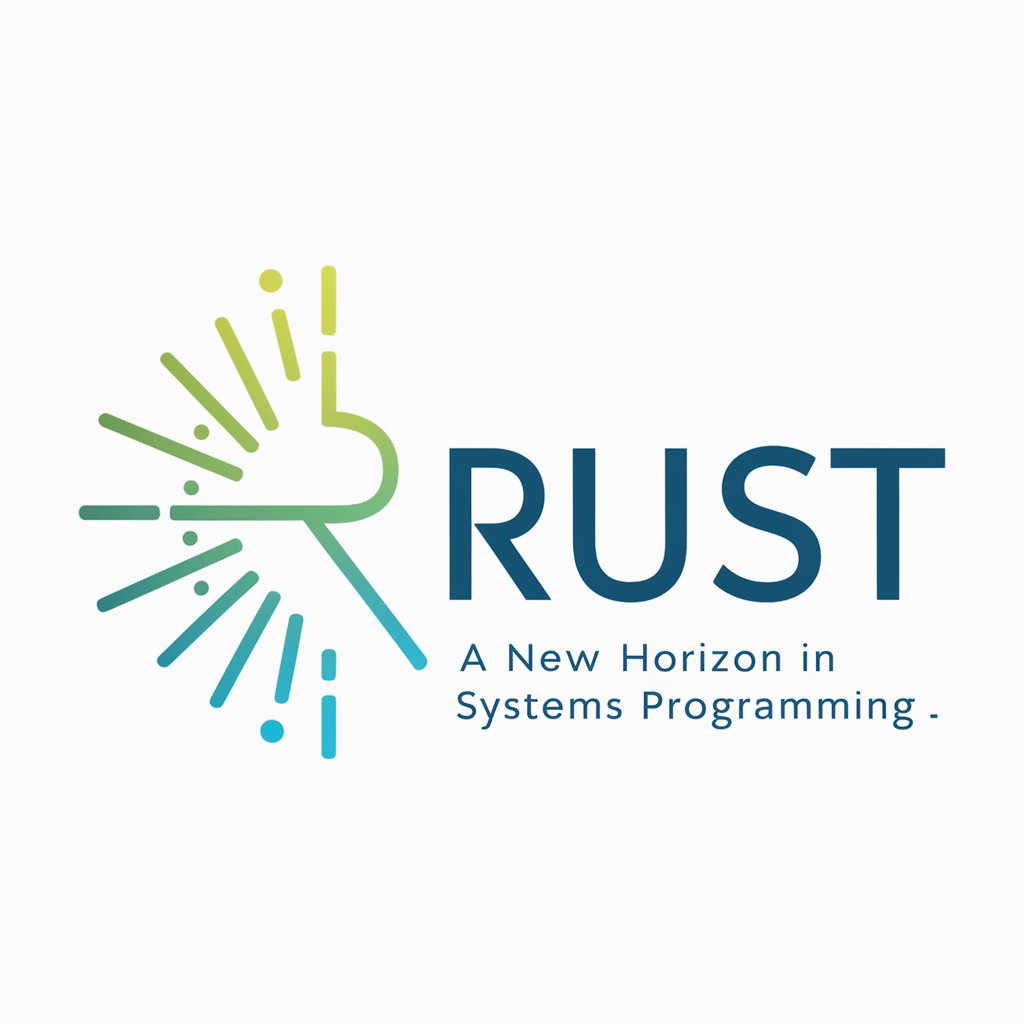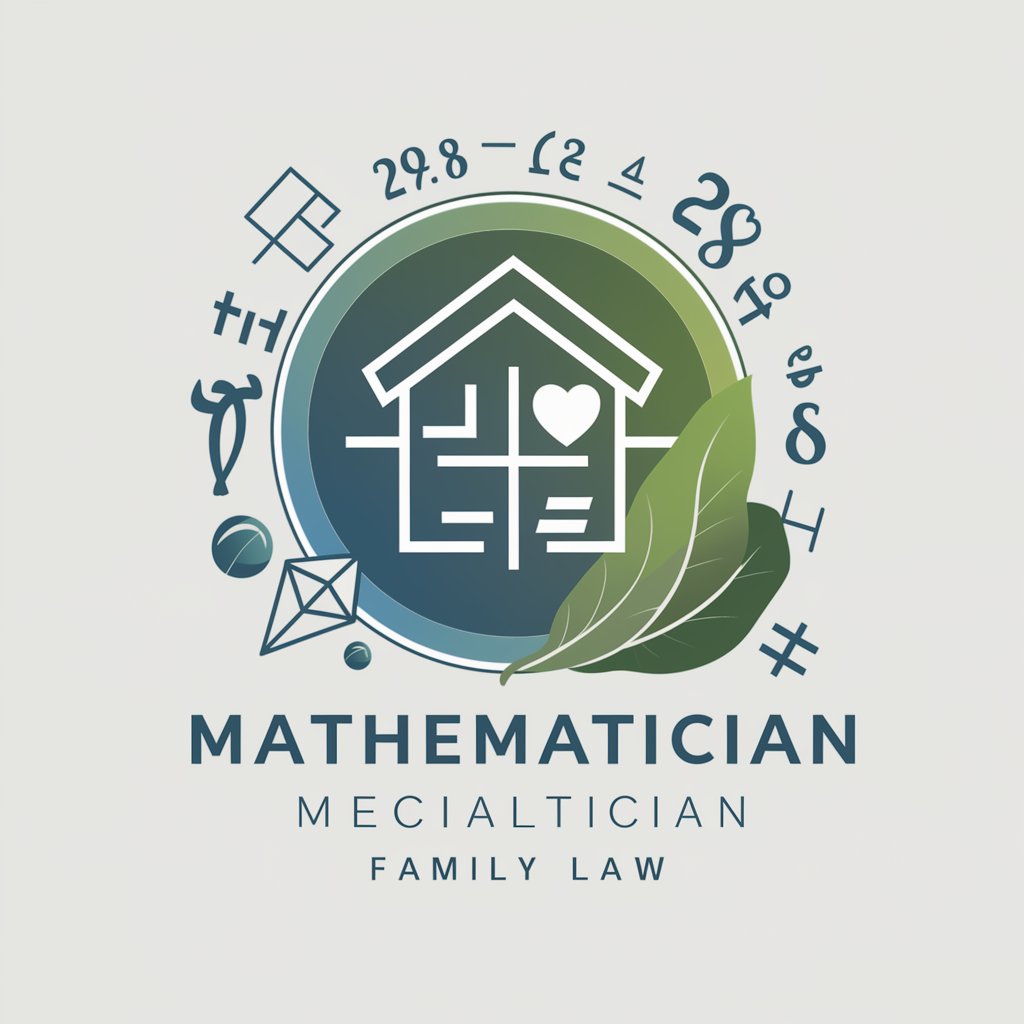Age of Reformation - Strategic Reformation Simulator

Welcome to Age of Reformation! Ready to reshape Europe's faith?
Shape Europe's Faith in the Reformation Era
In the year 1520, Europe stands on the brink of religious upheaval. Your mission is to...
As the leader of your chosen faith, you must navigate the treacherous waters of...
The Reformation has begun. Will you lead your flock to salvation or be swept away...
In an era of faith and fire, your choices will shape the religious landscape of...
Get Embed Code
Age of Reformation: An Overview
Age of Reformation is a text-based strategy game set during the tumultuous period of the Reformation era in Europe, a time characterized by religious upheaval, political intrigue, and social transformation. Designed to immerse players in the historical complexities of the 16th and 17th centuries, the game challenges participants to navigate the religious landscape of Europe, with the ultimate goal of converting over half of the continent to their chosen faith. Balancing historical accuracy with player freedom, Age of Reformation allows for a variety of strategic decisions, from engaging in theological debates to forging alliances with powerful monarchs. An example scenario could involve the player, acting as the leader of the Protestant movement, deciding whether to support a rebellion in the Holy Roman Empire to increase Protestant influence, while risking a potential backlash from Catholic states. Powered by ChatGPT-4o。

Core Functions and Applications
Strategic Decision Making
Example
Deciding to convene a council to address heresies within the church.
Scenario
In this scenario, a player might choose to address the rise of Crypto-Calvinism within Lutheranism by convening a church council. This decision could lead to increased internal faction loyalty due to the purging of heretical beliefs, but might also reduce influence among more moderate factions who view the council's decisions as too harsh.
Diplomatic Engagements
Example
Forming alliances with other religious or political entities.
Scenario
A player might negotiate an alliance with England as a Lutheran leader to secure military support against Catholic princes in the Holy Roman Empire. While this could significantly increase the player's influence and military capabilities, it might also alienate potential allies within the Empire who are wary of English intervention.
Religious Reformation
Example
Implementing doctrinal reforms to address congregational demands.
Scenario
Facing discontent among the congregants over church corruption, a player could choose to implement reforms to increase piety and congregational loyalty. However, these reforms might provoke opposition from conservative elements within the church, leading to a decrease in internal faction loyalty.
Target User Groups
History Enthusiasts
Individuals with a keen interest in the Reformation era, who seek an immersive experience that combines historical learning with strategic gameplay. Age of Reformation offers these users an opportunity to deepen their understanding of historical events while engaging in complex decision-making.
Strategy Gamers
Players who enjoy the challenge of strategy games and are looking for a unique setting that diverges from the typical fantasy or modern warfare scenarios. These users will appreciate the game's depth, the importance of making thoughtful decisions, and the dynamic nature of the game's evolving religious landscape.
Educators and Students
Teachers and students of history who can use Age of Reformation as an educational tool to explore the complexities of the Reformation period. The game can serve as a supplementary learning resource, offering a hands-on approach to understanding the socio-political and religious dynamics of the era.

Getting Started with Age of Reformation
1
Start by visiting yeschat.ai for a no-login, free trial experience, eliminating the need for ChatGPT Plus.
2
Choose your denomination and region within Europe to begin your journey in shaping the religious landscape during the Reformation era.
3
Familiarize yourself with the game mechanics, including influence, infamy, internal faction loyalty, and piety, through the tutorial.
4
Engage in strategic decision-making to manage trade-offs, such as reforming the church to balance piety and faction loyalty.
5
Monitor the religious landscape and your progress through the JSON-formatted game data after each turn to adapt your strategy.
Try other advanced and practical GPTs
Mental Health Education
Empowering mental health professionals with AI-powered insights.

Rust: A New Horizon in Systems Programming
Streamlining C++ to Rust conversion with AI

Data Engineer Project Guide
Empowering Data Projects with AI

Problem Solver
AI-powered solutions for any problem

Whisper | Habit Coach
Empowering habits with AI support.

Mathematician for Family Law
Empowering decisions with AI-driven insights

Cinematic Navigator
Tailoring Your Flight's Viewing Pleasure

mferGPT
Empowering the mfer Spirit with AI

Herald, just a retiree
Bridging generations with humor and wisdom.

Make it Pop!
Amplify your content with AI-powered pizzazz!

🖥️ Codepilot
Streamline Your Workflow with AI

Hyperloop Safety Guide
Ensuring Safe Hyperloop Journeys with AI

Frequently Asked Questions about Age of Reformation
What is Age of Reformation?
Age of Reformation is a text-based strategy game set in Europe during the Reformation era, where players aim to convert over half of Europe to their chosen faith, balancing historical accuracy and strategic decision-making.
How does the game measure progress?
Progress is measured through a combination of game points like influence, infamy, internal faction loyalty, and piety of the congregant, displayed in a JSON format reflecting the religious landscape across Europe.
Can you explain the trade-offs in decision-making within the game?
Decisions in the game involve strategic trade-offs, such as reforming the church to increase piety but potentially reducing internal faction loyalty, impacting the player's ability to maintain control and influence.
What kind of strategies can I employ in the game?
Strategies may include diplomatic engagement to increase influence, addressing heresies to maintain internal faction loyalty, or reforming religious practices to enhance piety and reduce infamy.
How does the game incorporate historical accuracy?
Historical accuracy is maintained through the game's setting, religious dynamics, and the consequences of player decisions, ensuring an immersive and realistic experience reflective of the Reformation era.
